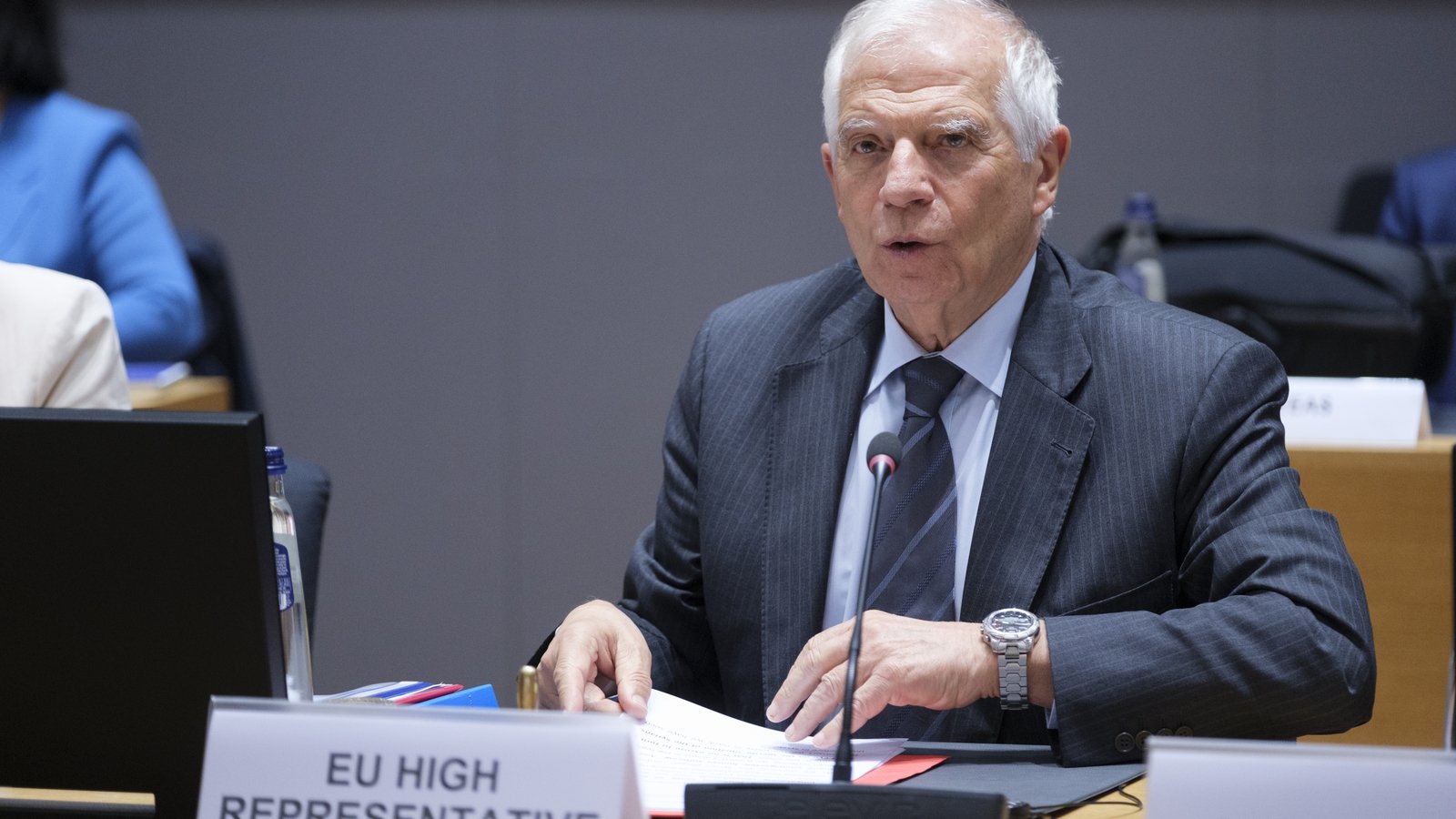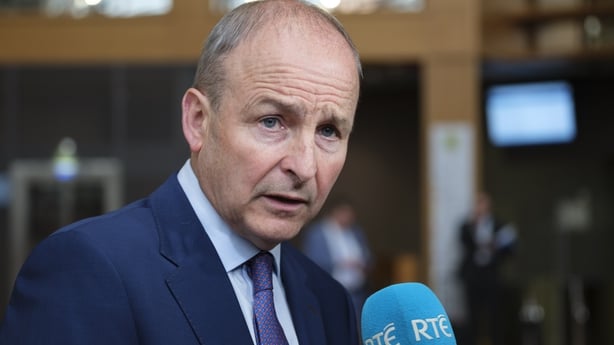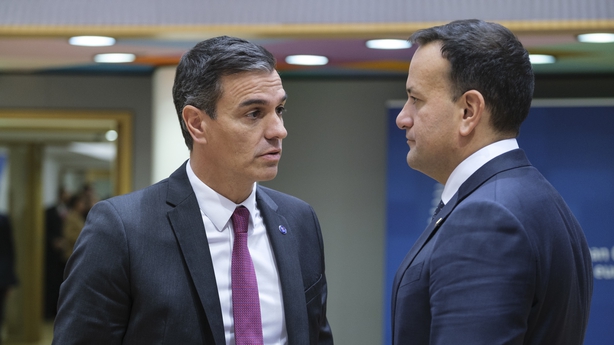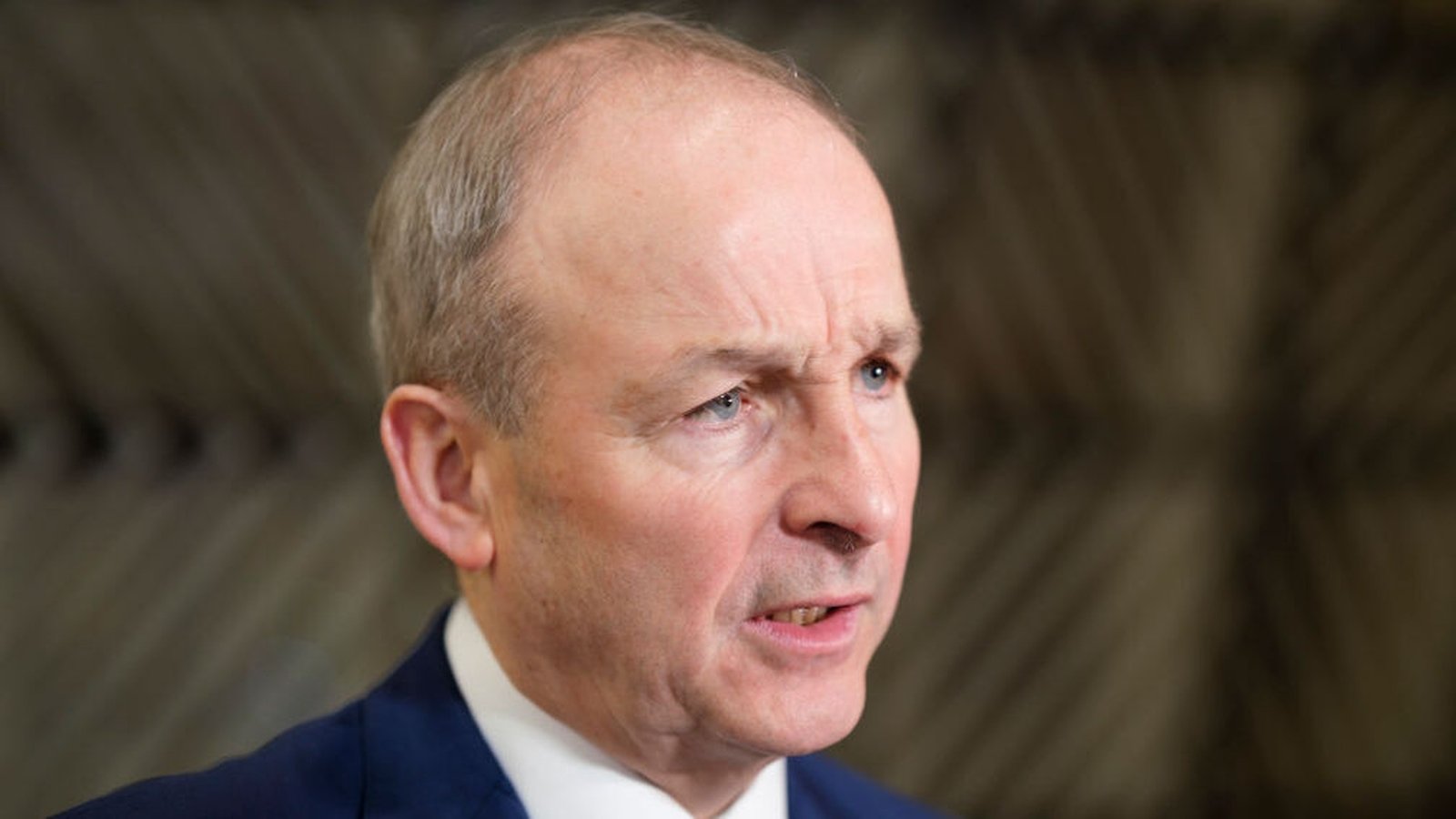Pushback among EU states over Israel forum meeting

A number of EU member states have pushed back against the idea of calling a meeting of an EU-Israel forum, despite EU foreign ministers agreeing to the idea on Monday, RTÉ News has learned.
According to EU foreign policy chief Josep Borrell, foreign ministers had agreed that the European Union should urgently convene the EU-Israel Association Council, to directly address Israel over its apparent refusal to comply with an order from the International Court of Justice (ICJ) to halt its military operation in Rafah.
Tánaiste Micheál Martin had supported the convening of the meeting, adding that a number of countries had discussed imposing sanctions on Israel if it did not comply with the ICJ order.
However, when EU ambassadors met yesterday to start the process of convening the meeting, Hungary, the Czech Republic and Bulgaria, all questioned whether foreign ministers had actually agreed to convene the council.

“They basically argued, well, this wasn’t actually concluded [at the foreign ministers meeting], or it went all very quickly and it was chaotic so we didn’t really know what was going on,” said one EU diplomat.
Two other sources confirmed that a number of member states had backtracked on what had been agreed on Monday.
A fourth source described the ambassadors’ meeting yesterday as “chaotic”. It is understood Ireland and other member states pushed back against the Hungarian, Czech and Bulgarian positions.
The EU-Israel Association Council is the ministerial body, which oversees the Association Agreement, covering bilateral relations – including trade, research and cultural links – between the EU and Israel.
The council has been in place since the early 2000s. It was originally supposed to meet once a year, but it has been dogged by friction between the EU and Israel over a number of issues, including the expansion of Jewish settlements in the West Bank.
The most recent gathering took place in 2022, following a lapse of ten years.
Despite the resistance from Hungary, the Czech Republic and Bulgaria, EU ambassadors agreed that member states had, through the foreign ministers meeting, given officials a mandate to start preparatory work so that Mr Borrell can issue an invitation to the Israeli foreign minister to convene the Association Council.
However, the friction indicates that getting unanimous agreement for the agenda of the meeting will be difficult.
“This of course signals that this isn’t going to be smooth sailing,” said one EU diplomat, “but at least the [High Representative Josep Borrell] and the [European] Commission have a mandate to move forward.”
Once the preparatory work is done, the EU will have adopted a common position, and an invitation extended to the Israeli government.
However, there is no guarantee that Israel would agree to comply.
One official pointed out that Israel could agree to the meeting, but then insist that it take place in Jerusalem.
However, a diplomat said that such a response would harden the sense of anger in EU capitals.
It is unlikely, however, that EU ministers would reach unanimity on threatening to suspend elements of the Association Agreement, such as the trade relationship, given the resistance of countries like Hungary and the Czech Republic.
In February, former Taoiseach Leo Varadkar and Spanish Prime Minister Pedro Sanchez jointly wrote to European Commission President Ursula von der Leyen in February, asking that the commission review the EU-Israel Association Agreement to verify if its human rights clauses had been breached by Israel.

As part of that process, EU foreign ministers wrote to Israeli Foreign Minister Israel Katz seeking a meeting, but both invitations were declined, according to an EU official.
Speaking in Brussels this morning, Minister for Enterprise, Trade and Employment Peter Burke said the Association Council should be convened as soon as possible in order to hold Israel to account for its recent actions in Gaza.
“It’s vitally important that the Association Council is convened,” he told reporters. “It’s important for a number of reasons, firstly, to respond to the catastrophic events we see unfolding in Gaza, secondly, to hold Israel to account for the actions that we have seen.
“We have an Association Agreement with Israel through the EU and it’s important that the human rights clauses contained within that agreement, their obligations under international law and [within the] agreement are [upheld].”
EU trade ministers meeting in Brussels this morning are expected to be updated on the issue of the Association Council.





